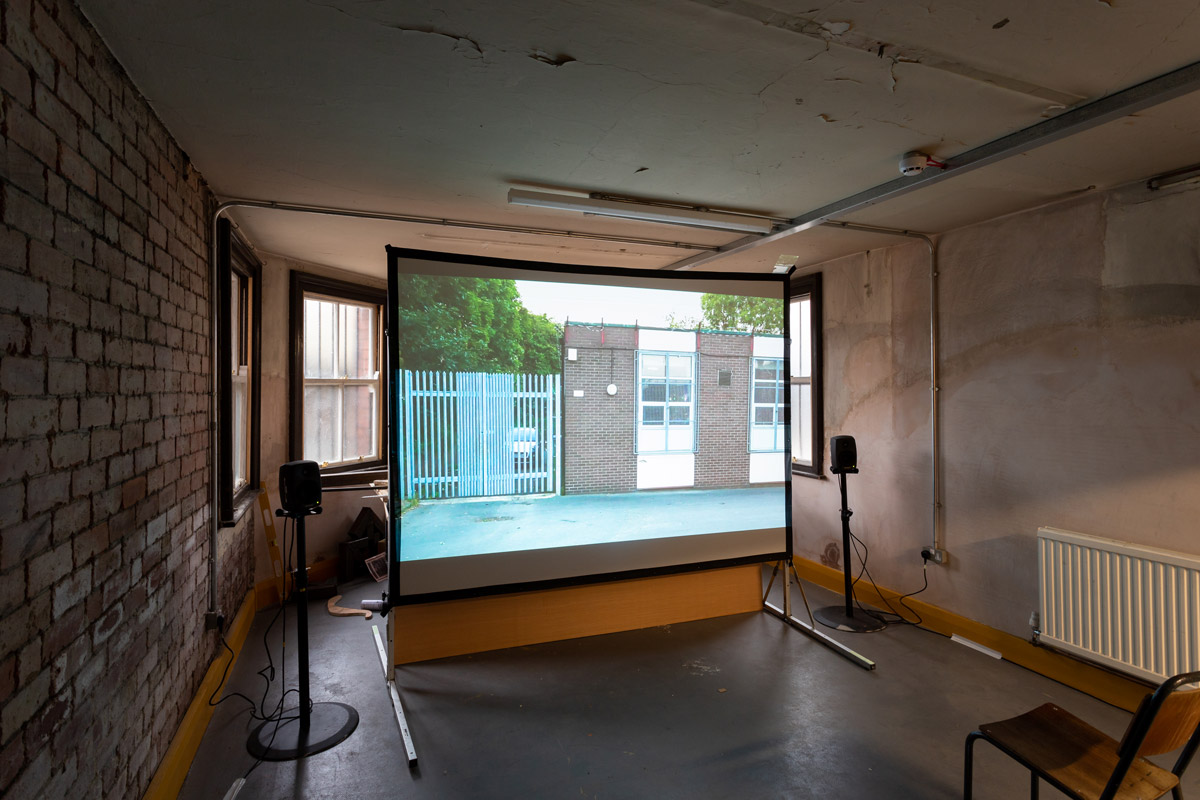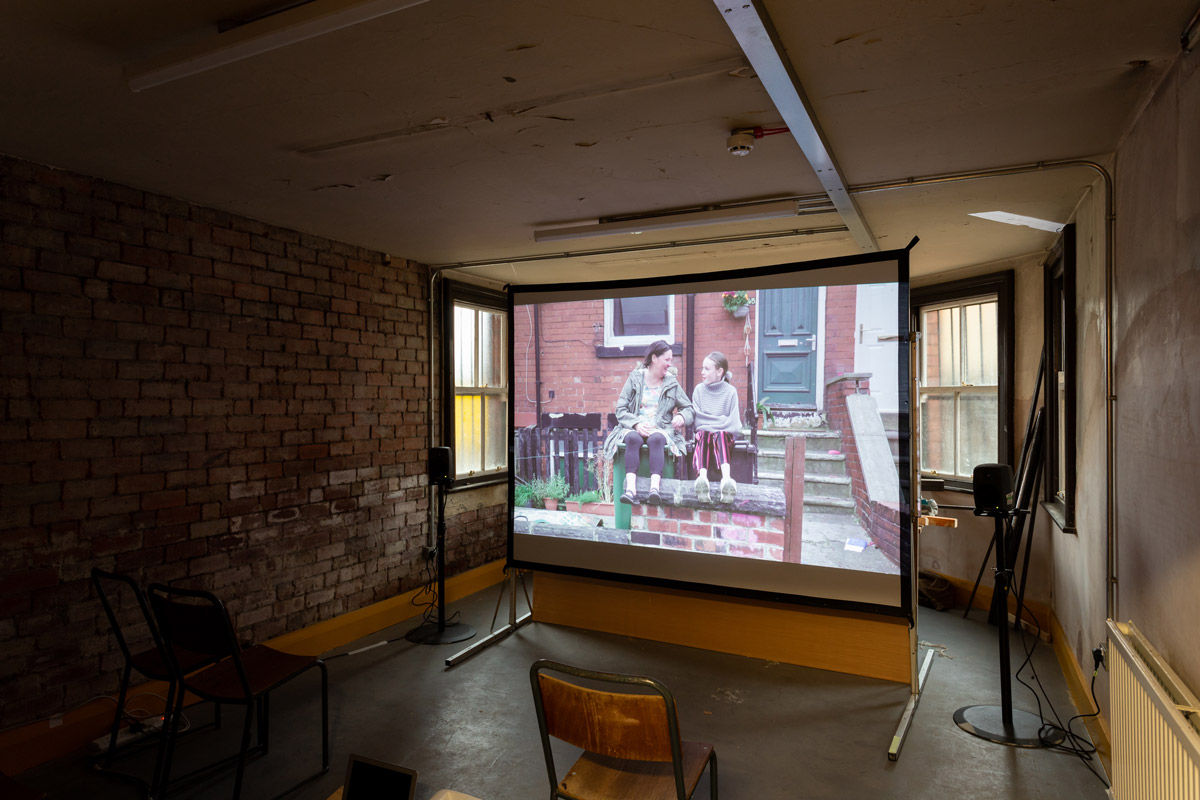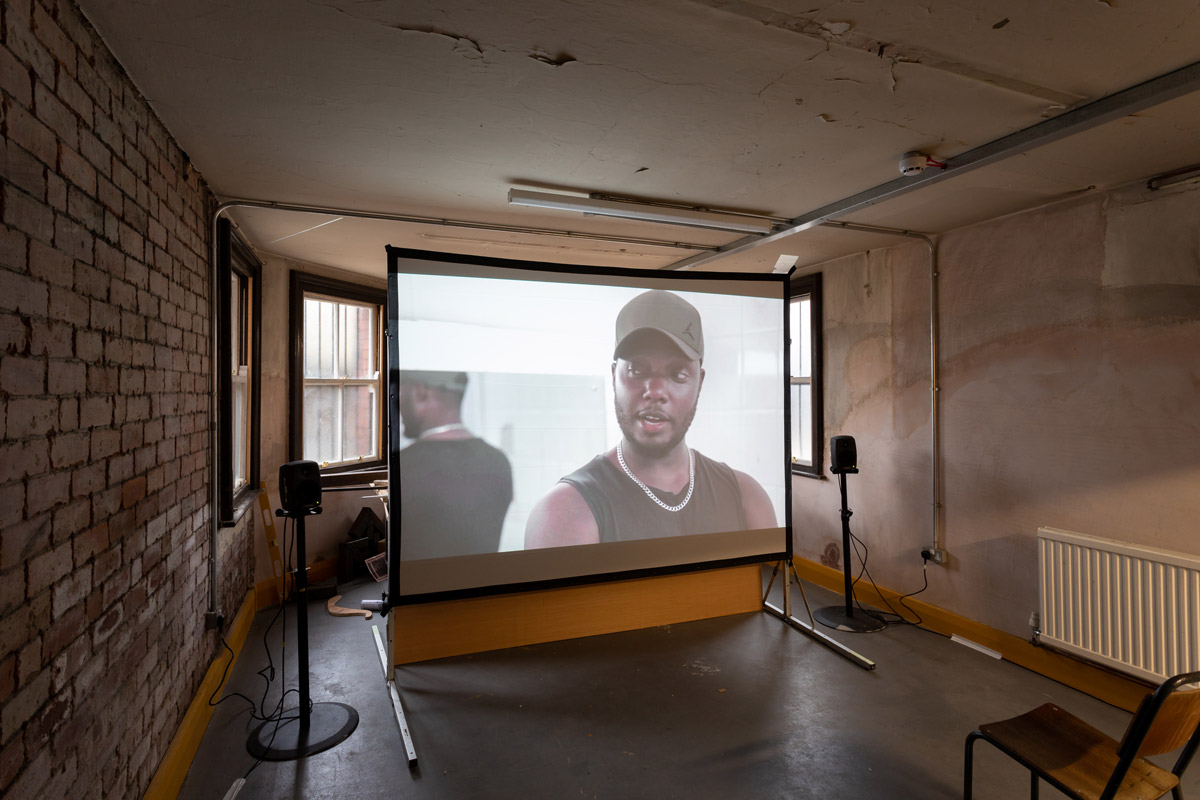Sophie & Kerri



Idle Acts
Sophie Chapman + Kerri Jefferis
Idle Acts is a film (work in progress) developed with a group of acting enthusiasts in Beeston, South Leeds and shot by cinematographer Lou Macnamara. It was produced whilst on residency at Artist House 45 over summer 2019.
Special thanks to: Rowland Road Working Men’s Club and the actors that lent us their trust: Chris Kellet, Phil Pearce, Dean Holmes, Charlene Holmes, Lily Mae Firth, Celia Borthwick, Rachel Sharp, Mo Bah and Tayyiba Islam. Cinematographer: Lou Macnamara. Sound: Martha Adebambo. The work was funded by the Arts Council England, Leeds Inspired and East Street Arts.
Trying Something Out : A Response to ‘Idle Acts’
by Sarah Jury
I don’t think I’ve ever been to Beeston, but I used to go in to Leeds a lot as a teen. For emo gigs, Little Miss Naughty underwear from La Senza, bath-bombs from Lush and drainpipe jeans that frayed on the pavement and soaked up the ever-present rain. I don’t know if anyone remembers the Corn Exchange in the late '90s (-grimy), that’s where we would go for illicit piercings. Back in my neighbourhood there wasn’t much to do, we’d just mumble about. We used to play a game on a little sheep bridge away from the houses, taking turns to make up a song on the spot about a random topic chosen by someone else in the group. Ridiculous nonsensical songs, just a structure to role play and build laughs around. A light structure- just Idle Acts.
Kerri Jefferis and Sophie Chapman used cue-cards to activate improvisation with the actors in this film, setting off ‘trying something out’, then switching characters around, trying it again and choosing where in Beeston to set the scene. Augusto Boal was an educator and activist who started working with theatre techniques in the ‘70s. Sophie and Kerri use Boal's methods, he called them "gamesercises", as they combine the training and "introversion" of exercises with the fun and "extroversion" of games (Boal, Augusto. Games for Actors and Non-Actors. Routledge, 2010.). Boal also used the technique of playing out a scene, then stopping it and swapping characters and narrative around under the advice of other people in the room. In this method there aren't actors and audience as such, everyone is a “spectator”. In Idle Acts the actors were hired and paid, but the ubiquitous role was as co-creators; using improvisation and chats to deliver this collection of sometimes nonsensical scenes, which reconcile the mumbling and the poignant moments of hanging out together in Beeston.
Mumblecore is not often used to talk of artists film today, when this genre became detached from its lo fi roots it lost validity. Officially we’re post-mumblecore. The original method stands as significant, democratic and anti-capitalist- forcibly so after funding cuts left filmmakers without resources, so methods went back to mates helping each other out: cheap technology, improvising; evidence of existing relationships slipping into scenes. The division between participant, audience and maker becoming entwined, yet still holding space for autonomy. More autonomy than is allowed for while living under the structural constraints of local council land ownership battles and reduced service provision that affect many local neighbourhoods like Beeston now.
Sarah Jury is a creative practitioner based in London.
